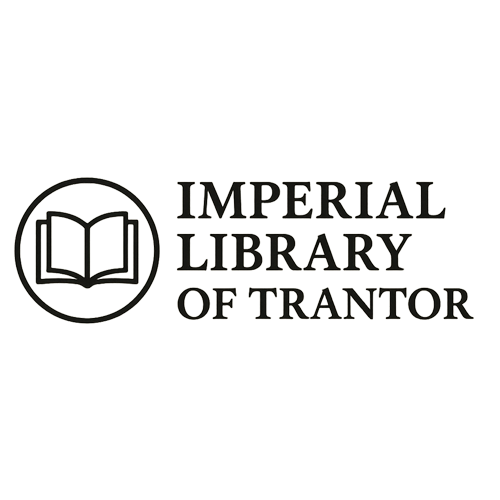
- A digital archive inspired by Isaac Asimov’s Foundation universe.
- Offers a vast collection of texts, often in science fiction and beyond.
- Functions as an online library accessible to a global audience.
- Symbolizes the preservation of knowledge in a free, open format.
CLEARNET LINK
Imperial Library of Trantor: A Digital Library on the Tor Network
The Imperial Library of TrantorThe Imperial Library of Trantor is a digital library hosted on the Tor network that provides DRM-free ePub ebooks for anonymous and unrestricted access. Inspired by Isaac Asimov’s fictional Trantor library, the project promotes free knowledge sharing and resists censorship by operating exclusively on Tor. Built in Go with MongoDB, it offers simple navigation, indexing, and search. While it exists in a legal gray area, it stands as a cultural initiative to preserve and democratize access to literature worldwide. More is an independent project created by enthusiasts to provide unrestricted access to ebooks. Inspired by Isaac Asimov’s fictional library on Trantor in the Foundation series, it aims to be a universal archive of knowledge for everyone. The real-world project is hosted on the Tor network and offers DRM-free ePub files through a simple, anonymous interface.
In a time when many books are locked behind paywalls or restricted by digital rights management (DRM), the Imperial Library of TrantorThe Imperial Library of Trantor is a digital library hosted on the Tor network that provides DRM-free ePub ebooks for anonymous and unrestricted access. Inspired by Isaac Asimov’s fictional Trantor library, the project promotes free knowledge sharing and resists censorship by operating exclusively on Tor. Built in Go with MongoDB, it offers simple navigation, indexing, and search. While it exists in a legal gray area, it stands as a cultural initiative to preserve and democratize access to literature worldwide. More seeks to revive the idea of free and open exchange of literature.
Origins and Philosophy
The project is built on two core principles:
Free access to knowledge.
DRM restrictions limit how people can use ebooks—blocking copying, sharing, or offline storage. The library distributes only DRM-free ePub files that can be read on any device without restrictions.
Anonymity and resilience.
Hosting the library on Tor provides:
- access for users in censored or restricted countries,
- protection against takedowns or legal pressure from publishers.
The name itself is symbolic: a tribute to Asimov’s universe and a vision of a “digital Trantor,” a utopian library open to all.
Technical Foundation
The project’s codebase, called Trantor, is open-source and available on GitHub.
Programming language: Go (Golang).
Database: MongoDB, used to store metadata and enable fast search.
Format: ePub — a widely supported and flexible ebook format.
Features include:
- uploading and indexing ebooks,
- categorization by authors, genres, and tags,
- keyword search,
- a lightweight web interface designed for Tor.
Developers describe the project as being in a pre-beta stage, open to contributions and improvements.
Risks and Legal Issues
Like many dark web projects, the library operates in a legal gray zone:
- Copyright concerns. Some books may be distributed without proper licenses, depending on local laws.
- Instability. Onion services are vulnerable to downtime and address changes.
- Security. Fake mirrors or phishing sites are a potential risk; users must be cautious.
- While the creators frame the library as a cultural initiative, legal consequences vary by country.
Importance for the Community
The Imperial Library of TrantorThe Imperial Library of Trantor is a digital library hosted on the Tor network that provides DRM-free ePub ebooks for anonymous and unrestricted access. Inspired by Isaac Asimov’s fictional Trantor library, the project promotes free knowledge sharing and resists censorship by operating exclusively on Tor. Built in Go with MongoDB, it offers simple navigation, indexing, and search. While it exists in a legal gray area, it stands as a cultural initiative to preserve and democratize access to literature worldwide. More is more than just a file repository—it’s part of a wider movement for open knowledge and free libraries.
For students and researchers in countries with limited access, it’s a way to obtain essential literature.
For preservationists, it’s a method of saving rare texts that might otherwise disappear from commercial catalogs.
For the dark web community, it’s proof that science fiction ideals can inspire real-world projects.
Conclusion
The Imperial Library of TrantorThe Imperial Library of Trantor is a digital library hosted on the Tor network that provides DRM-free ePub ebooks for anonymous and unrestricted access. Inspired by Isaac Asimov’s fictional Trantor library, the project promotes free knowledge sharing and resists censorship by operating exclusively on Tor. Built in Go with MongoDB, it offers simple navigation, indexing, and search. While it exists in a legal gray area, it stands as a cultural initiative to preserve and democratize access to literature worldwide. More is an attempt to bring Asimov’s vision of a universal library into the digital age. While it may not have the galactic scale of its fictional namesake, it embodies the same mission: preserving and sharing knowledge with future generations.
In today’s digital landscape—where information is often locked behind corporate barriers—projects like this remind us that access to literature is not only a convenience but also a fundamental right.


